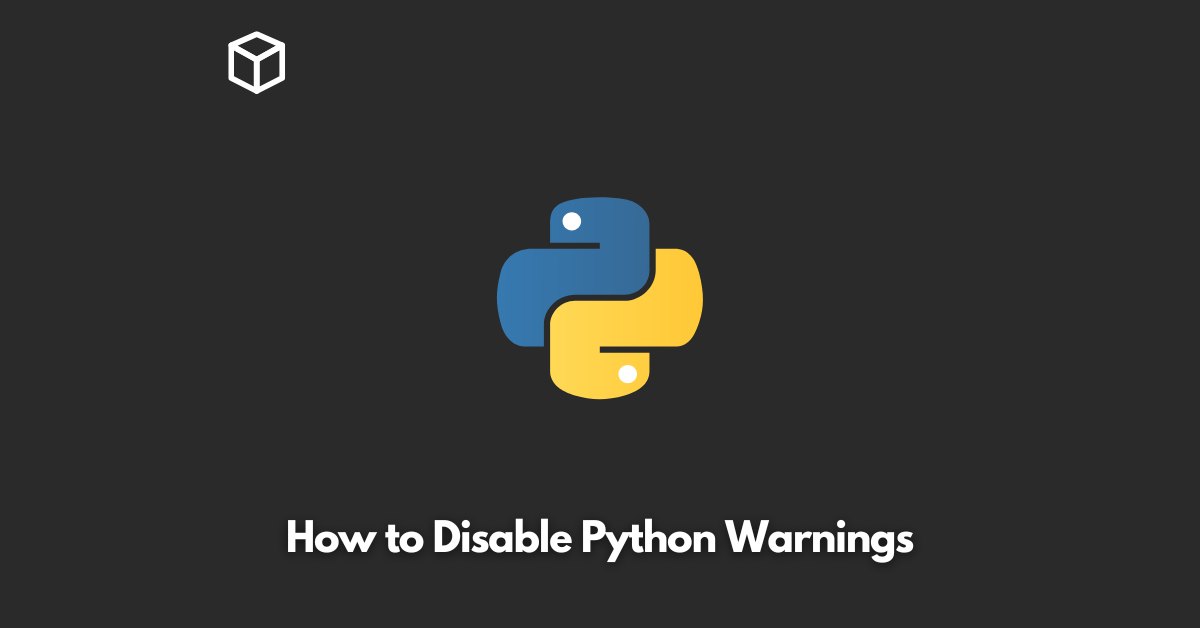As a software developer, you must have encountered Python warnings while working on your projects.
Warnings are a way of informing the programmer that some code has potential issues that could lead to bugs or errors in the future.
While warnings can be useful, they can also get in the way and slow down your development process.
This is especially true if you are working with a large codebase or are using third-party libraries that generate a lot of warnings.
In this tutorial, we will explore different ways to disable Python warnings, including the built-in methods, and the use of third-party libraries.
Disabling Warnings Globally
One of the easiest ways to disable Python warnings is to do it globally.
This means that warnings will be disabled for the entire Python environment, including all modules and packages.
To disable warnings globally, you can use the following code snippet:
import warnings
warnings.filterwarnings("ignore")This will turn off all warnings for the rest of the script.
However, this method is not recommended as it will suppress all warnings, even those that are important.
Disabling Warnings for Specific Modules
Another way to disable warnings is to do it for specific modules.
This is a better approach as it allows you to turn off warnings for just the modules that are causing problems, while still allowing other warnings to be displayed.
To disable warnings for specific modules, you can use the following code snippet:
import warnings
warnings.filterwarnings("ignore", category=DeprecationWarning, module="module_name")Replace “module_name” with the name of the module for which you want to turn off warnings.
Using the “warnings” Library
If you need more control over your warnings, you can use the “warnings” library.
This library provides a way to control the behavior of warnings and allows you to specify the action to be taken when a warning occurs.
To use the “warnings” library, you can use the following code snippet:
import warnings
warnings.simplefilter("ignore")This will turn off all warnings for the rest of the script.
Disabling Warnings in Jupyter Notebook
If you are using Jupyter Notebook, you can disable warnings by adding the following code snippet to the first cell:
import warnings
warnings.filterwarnings("ignore")This will turn off all warnings for the rest of the Jupyter Notebook.
Conclusion
In this tutorial, we have explored different ways to disable Python warnings.
Whether you want to turn off warnings globally, for specific modules, or in Jupyter Notebook, we have provided the code snippets that you need.
While disabling warnings can be helpful in certain situations, it is important to understand that warnings are there for a reason, and that they can help you avoid bugs and errors in your code.
Therefore, it is recommended to only disable warnings when it is necessary, and to always be mindful of the potential consequences.




